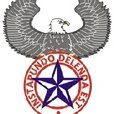Understanding Islam by Lone Pony
 Lone Pony gave me permission to post about her deeply researched study on Islam. She is a teacher and a lovely person that always makes me smile when I visit her blog. We felt that this was important for ones that may not understand (I stay confused on this form of religion myself) as I do and perhaps knowing more about the Islamic Extremist may shine some light on what they believe. With all that is happening in the world with riots, beheadings, hatred, and desiring to kill Jews and Christians, this was posted at a perfect time last week. Sorry I am just now getting it published. I suggest all to go visit Lone Pony . Many of us have read this but for others that may read my blog, you will find this very interesting. Part 1: What are the central beliefs of Islam?
Lone Pony gave me permission to post about her deeply researched study on Islam. She is a teacher and a lovely person that always makes me smile when I visit her blog. We felt that this was important for ones that may not understand (I stay confused on this form of religion myself) as I do and perhaps knowing more about the Islamic Extremist may shine some light on what they believe. With all that is happening in the world with riots, beheadings, hatred, and desiring to kill Jews and Christians, this was posted at a perfect time last week. Sorry I am just now getting it published. I suggest all to go visit Lone Pony . Many of us have read this but for others that may read my blog, you will find this very interesting. Part 1: What are the central beliefs of Islam? As a teacher/perpetual learner, I just couldn't help myself. I believe we should learn every chance we get. I also believe we should learn as much as we can about the things that threaten us or frighten us. I admit, these people frighten me.
Islam is the religion founded by a fierce visionary named Muhammad (ca. A.D. 570 - 632), who was born in the city of Mecca in Arabia. Part One
Part 2: How did Islam originate?
Islam began with the supernatural visions and revelations that Muhammad claimed he received from God through the angel Gabriel beginning in A.D. 610. Because Muhammad was uneducated and could neither read nor write, these revelations were first memorized and then later written down by his followers. Part Two
Part 3: Is the founder of Islam who he claimed to be?
An Excerpt: Two entirely different Gods with contrary missions to mankind can’t be the same God, as Muslims know too well. Consider some of the differences between the God of Islam (Allah), and the God of the Bible: Part Three
Part 4: Are the Muslim scriptures reliable?
Excerpts: The Qur’an also teaches that Abraham was not a Jew but a Muslim. “No; Abraham in truth was not a Jew, neither a Christian; but he was a Muslim.....
Dr. Robert Morey lists more than 100 errors in the Qur’an. Here are a few. Citing Ali’s accepted translation, the Qur’an teaches the Ark of Noah came to rest on the top of Mt. Judi (Sura 11:44), not Mt. Ararat as the Bible teaches; Abraham’s father was Azar (Sura 6:74), not Terah as the Bible teaches; that Abraham attempted to sacrifice Ishmael (Sura 37:100-112), not Isaac as the Bible teaches; Pharoah’s wife adoped Moses (Sura 28:8-9), not his daughter as the Bible teaches; Noah’s flood occurred in Moses’ day, not Noah’s (Sura 7:136, cf. 7:59ff.); Mary, the mother of Jesus, gave birth to Jesus under a palm tree (Sura 19:22), not in a stable as the Bible teaches; etc.24........Part Four
Several of her sources are listed below:
Notes
13. A.J. Arberry, The Qur’an Interpreted (New York: MacMillan, 1976), p 85, emphasis added.
14. Ibid., p. 35.
15. N.J. Dawood, The Koran with a Parallel Arabic Text (New York: Penguin, 1997) p. 384.
16. Arberry, Qur’an Interpreted, pp. 120-21
17. Abdiyah Akbar Abdul-Haqq, Sharing Your Faith with a Muslim (Minneapolis: Bethany, 1980), pp. 22-31, 38-46, 50-53, 67-73; Arberry, Qur’an Interpreted, pp. 185, 199, 120-22.
18. Holt, ed., Cambridge History of Islam, cited in McDowell and Gilchrist, The Islam Debate, p.16.
19. J.N.D. Anderson, ed., The World’s Religions (Grand Rapids, MI: Eerdmans, 1966), pp. 54,60. 20. Alfred Guillaume, Islam (New York: Penguin Books, 1977), pp. 38-39.
21. Ibid., p. 37, cf. p. 56.
22. N.J Dawood, The Qur’an (Baltimore: Penguin Books, 1972), p. 253
23. Arberry, Qur’an Interpreted, p. 83.
24. Robert Morey, Islamic Invasion (Eugene, OR: Harvest House, 1992), pp. 137-58.
25. Arberry, Qur’an Interpreted, pp. 135, 229.
26. See “The Origins of the Koran” at www.SecularIslam.org.
27. William Miller, Ten Muslims Meet Christ (Grand Rapids, MI: Eerdmans, 1984), p. 52; John Elder, The Biblical Approach to the Muslim (Fort Washington, PA: Worldwide Evangelization Crusade, 1978), p 27.
28. J.M. Rodwell, The Koran (New York: Dutton, 1972), p. 1; Guillaume, Islam, p. 57.
29. Morey, Islamic Invasion, pp. 120-26.






































<< Home